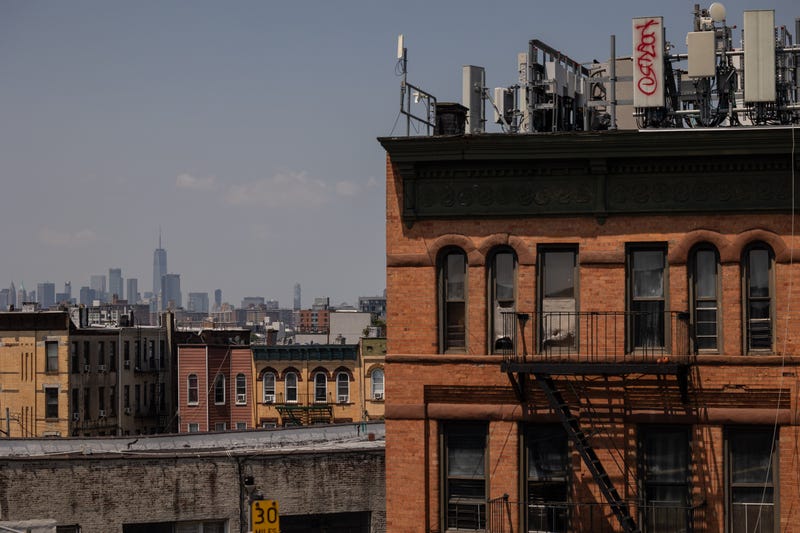
NEW YORK (BLOOMBERG) -- A federal judge refused to block a New York City law that would require landlords — rather than their tenants — to pay fees for hiring listing brokers.
US District Judge Ronnie Abrams on Tuesday denied a request by the Real Estate Board of New York, the New York State Association of Realtors and others for a court order halting enforcement of the new measure while their lawsuit proceeds. The ruling is another setback for the real estate industry in its legal fight to prevent enforcement before the measure goes into effect June 11.
The judge said that the primary legal question was whether the law “infringes plaintiffs’ speech and contract rights such that preliminary judicial relief is warranted. The Court concludes that it does not.”
The City Council adopted the measure in November to end the longstanding practice of tenants being forced to pay costs incurred by landlords to hire the brokers who list their properties, which can add thousands of dollars to housing costs. The real estate industry argued the new law branded brokers as villains and would force landlords to raise rents to cover the costs of hiring them.
New York and Boston are the only major American cities where rental broker fees are commonly passed to tenants even if they didn’t hire them, a practice that has perturbed renters for decades.
New York City renters who settle on apartments that have broker fees pay an average of almost $13,000 to secure the keys to a property, which frequently includes thousands of dollars in fees for brokers hired by landlords to secure tenants, according to an analysis by StreetEasy released last year. Roughly 40% to 50% of listings on StreetEasy have required lease signers to pay the commissions of agents hired by their new landlords, which have typically ranged from one month’s rent to 15% of the annual bill.
The Real Estate Board contends that the law, known as Fairness in Apartment Rental Expenses Act, or FARE Act, interferes with exclusive agreements that landlords sign with brokers to list their properties and find tenants, in violation of the Constitution’s bar against state laws impairing private contracts. It also argues the law violates the free-speech rights of landlords and brokers who publish real estate listings and then seek to receive compensation from tenants for the cost of the listing service.
James Whelan, the Real Estate Board’s president, said he was disappointed with the ruling. “New Yorkers will soon realize the negative impacts of the FARE Act when listings become scarce, and rents rise,” Whelan said in a statement. “We will continue to litigate this case as well as explore our avenues for appeal.”
The lawsuit alleges that the law will make rent-stabilized apartments too costly to operate and force landlords to raise rents to cover the cost of broker fees. The industry says tenants usually pay less over the life of a lease when commissions are paid separately, and that some are already refusing to pay broker fees even though the law hasn’t taken effect yet.
More Affordable
The city maintains the transfer of broker fees to tenants will make apartments more affordable and easier for renters to move to better properties, saying that such charges add a major cost to families who already are shelling out thousands of dollars upfront and a substantial portion of their income on housing. New York University’s Furman Center, which studies housing, neighborhoods and urban policy, said more than half of city households spend 30% or more on rent.
The judge said that while brokers’ fees “will impose a significant burden” on property owners, they can increase rent to offset those costs, while tenants cannot pass the cost of brokers to their landlords.
“While it may be true that this will worsen existing issues with housing affordability, the City Council explicitly disclaimed any interest in ‘solv[ing] the affordability crisis,’” Abrams wrote. “Instead, it made a policy decision to address the causes of housing immobility notwithstanding the Act’s potential negative consequences for affordability.”
A state-approved broker-fee ban was briefly in place in February 2020, just before the first Covid lockdown brought the rental market to a near halt. By the time renter demand began rising the next year, a court had struck down the state law and brokers were eager to capitalize on what quickly became a very competitive market where prices have continued to rise.
The law could dramatically change the dynamics of the city’s highly competitive rental market, where prices have soared since pandemic restrictions began easing in 2021. The median cost of new Manhattan leases was $4,500 in April, tying a record high reached in February, according to appraiser Miller Samuel Inc. and Douglas Elliman. Prices have also set records in the outer boroughs.
The case is Real Estate Board of New York v City of New York, 24-cv-9678, US District Court, Southern District of New York (Manhattan).
The case is Real Estate Board of New York v City of New York, 24-cv-9678, US District Court, Southern District of New York (Manhattan).
— With assistance from Christine Maurus
More stories like this are available on bloomberg.com.
